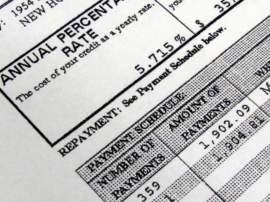
Easy Guide to Business Credit Cards

What are
Business Credit Cards?
Business Credit Cards are specific to recipients
undertaking business endeavors and commercial practices. Upon the respective
approval of Business Credit Cards, the terms and conditions applicable to the
credit cards will typically vary in accordance to the credit history and credit
score associated with the individual business. The analysis undertaken by the
lending credit institution will determine applicable credit limits, interest,
and Annual Percentage Rates (APR).
The nature of businesses eligible for Business
Credit Cards, in addition to the type of Business Credit Cards, will vary in
accordance with a wide range of classifications associated with that business. In
order to provide this determination, credit institutions will consider the debt
to profit ratio, revenue, history, and credit history belonging to the business.
Types of Business Credit Cards
In most cases, the following two classifications
of Business Credit Cards are applicable upon their respective approval for
individual, commercial applicants:
Unsecured Business Credit Cards
Unsecured Business Credit Cards are synonymous
with the traditional definition of a credit cards, which is identified as a
method of credit that lacks intrinsic ties or reliance on preexisting monetary
savings. The notion of unsecured Business Credit Cards allows for the recipient
to undergo the spending, exchange, and transfer of monies with regard to the
eventual and implicit repayment of an outstanding balance. Unsecured Business
Credit Cards may be classified as a type of loan.
Secured Business Credit Cards
Secured Business Credit Cards may require the
presence of ‘surety’ formulated with the addition of a third party in addition
to borrower and the lender. Surety is defined as a third-party entity
responsible for the ultimate repayment of the credit card balance. In certain
cases, a surety may also be defined as a ‘guarantor’. In the event of the
Principal’s failure to repay the credit card balance, the responsibility of
repayment will become that of the Surety. Surety loans allow for heightened
insurance with regard to the lender with regard to the reduction of the risk of
failure to satisfy outstanding credit card balances.
Credit Score Analysis with regard to the Application
for Business Credit Cards
Business and Commercial endeavors ranging from
established corporations to start-up businesses are eligible to receive
Business Credit Cards. However, the risk of default, financial analysis, and
earnings associated with a business will be critical in establishing the terms
of credit limits, APR, and scheduled repayment intrinsic within Business Credit
Cards.
Business Credit Cards Legality
Business Credit Cards will typically fall under
the jurisdictions of both Finance Law and Commercial Law.
Finance Law is the legal specialty regulating and
overseeing legislation applicable to the exchange and the circulation of monies.
This takes place in both transfer activity undertaken involving hard currency,
as well as Business Credit Cards.
Commercial Law is the legal field that enacts the
regulatory oversight of standards and practices occurring within the commercial
marketplace. With regard to Business Credit Cards, statutory legislation
undertaken within the precepts of Commercial Law ensures that any nature of
predatory lending or financial exploitation is determined to be an illegal
offense. Amongst the many types of legislation applicable to Commercial Law,
the Fair Billing Credit Act provides consumer relief from billing procedures
considered to be exploitative and deceptive.
NEXT: Easy Steps for Credit Card Protection




















